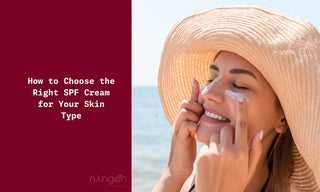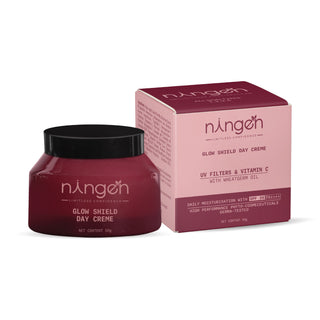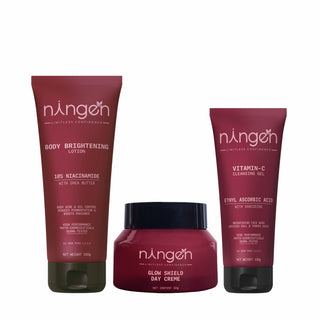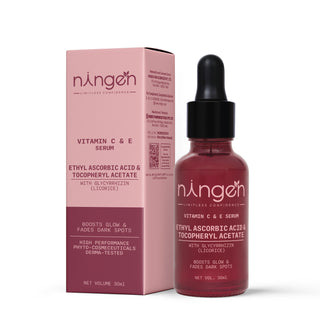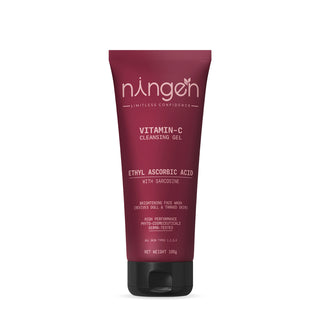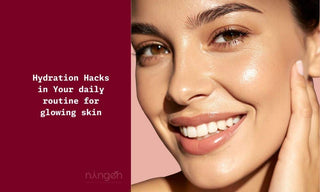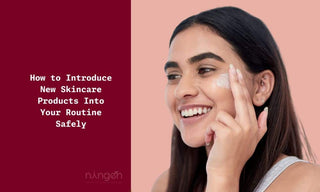When it comes to skincare, sunscreen is non-negotiable. Whether it’s sunny or cloudy, summer or winter, your skin needs protection from harmful UV rays that can cause premature aging, sunburn, and even skin cancer. But with so many SPF creams on the market—gel-based, cream-based, mineral, chemical—it can be overwhelming to pick the right one for your skin type.
Should you go for a lightweight gel if you have oily skin? Is a mineral sunscreen better for sensitive skin? And what about those with dry or acne-prone skin? If you’ve ever struggled with these questions, you’re in the right place! In this guide, we’ll break down exactly how to choose the right SPF cream for your skin type, so you can protect your skin while keeping it healthy and glowing. Let’s dive in!
In this Article;
Understand the Importance of Sun Protection
How to Choose the Right SPF Rating for Your Skin Type?
Key Considerations for Selecting the Right SPF Cream
Recommended SPF Formulations for Each Skin Type
Best Practices for Applying Sunscreen
Importance of Broad-Spectrum Protection
Is a Water-Resistant SPF Cream the Right Choice for You?
Seasonal Considerations for SPF Use
Understand the Importance of Sun Protection
Sun protection is a crucial step in any skincare routine, no matter your skin type or the weather outside. Using the right SPF crème daily helps prevent premature aging, sunburn, and serious skin conditions like skin cancer. Here’s why sun protection matters and how to choose the best product for your skin:
Why Do You Need Daily Sun Protection?
-
Prevents Premature Aging – UV rays cause fine lines, wrinkles, and dark spots. A daily face moisturizer with SPF helps keep your skin youthful.
-
Protects Against Sunburn & Damage – Using a face moisturiser with SPF 30 ensures broad-spectrum protection from harmful UVA and UVB rays.
-
Reduces Risk of Skin Cancer – Consistent SPF use significantly lowers the chances of developing skin cancer.
How to Choose the Right SPF Rating for Your Skin Type?
SPF (Sun Protection Factor) measures how much UV radiation it takes to cause sunburn on skin with sunscreen compared to skin without it. The higher the SPF number, the better the protection against sunburn.
However, many people mistakenly believe that SPF tells them how long they can stay in the sun without burning. For example, some think that if they usually burn in one hour, an SPF 15 sunscreen will let them stay outside for 15 hours without burning. This isn't true because SPF is based on the amount of sun exposure, not time.
Sun exposure depends on more than just time—it also depends on how strong the sun is at a given moment. For instance:
Spending one hour in the sun at 9:00 a.m. might expose your skin to the same amount of UV radiation as 15 minutes at 1:00 p.m. when the sun is much stronger.
Other factors also affect sun exposure like:
-
Time of Day: The sun is strongest around midday and weaker in the morning or evening.
-
Location: Places near the equator get more intense sunlight than areas farther away.
-
Weather Conditions: Clear skies mean stronger sun exposure, while clouds absorb some of the UV rays, reducing sun intensity.
So, when choosing an SPF level, remember that it’s not about how long you stay outside—it’s about how much UV radiation your skin is exposed to. Always reapply sunscreen regularly, especially when the sun is strong!
Source: U.S. Food & Drug Administration
https://www.fda.gov/about-fda/center-drug-evaluation-and-research-cder/sun-protection-factor-spf
Key Considerations for Selecting the Right SPF Cream
Choosing the right sunscreen is crucial for effective sun protection and skin health. Here's what you need to consider:
-
Skin Type:
-
Oily Skin: Opt for a matte moisturizer with SPF or water-based sunscreen for face. These formulations help control shine.
-
Dry Skin: A hydrating SPF moisturiser is ideal. Look for ingredients like hyaluronic acid to lock in moisture.
-
Sensitive Skin: Choose a fragrance-free, hypoallergenic sunscreen cream for face to avoid irritation.
-
SPF Level:
-
For daily protection, a sunscreen cream with at least SPF 30 is essential. This provides adequate defense against UVB rays.
-
Broad-Spectrum Protection:
-
Ensure the sunscreen offers UVA and UVB protection. A broad-spectrum SPF face cream shields your skin from premature aging and sunburn.
-
Application Area:
-
A specific face sun cream or the best face cream with SPF is recommended for the face. It should be lightweight and non-comedogenic.
Selecting the right product ensures your skin stays healthy and well-protected against the sun’s harmful rays.

Recommended SPF Formulations for Each Skin Type
Finding the right SPF formulation tailored to your skin type can make a significant difference. Here's a closer look at the best options to keep your skin healthy and protected:
-
Oily Skin: The best sun cream face solutions for those with oily skin are matte moisturizers with SPF or water-based sunscreen creams. These options help control excess oil and reduce the appearance of shine throughout the day, providing a perfect matte finish.
-
Dry Skin: For individuals with dry skin, a hydrating SPF moisturiser is your go-to choice. Look for formulations enriched with ingredients like hyaluronic acid, which help to retain moisture and keep your skin hydrated even under the sun.
-
Sensitive Skin: If you have sensitive skin, opt for fragrance-free, hypoallergenic sun protection creams. These formulations minimize the risk of irritation and protect your skin gently.

Also read: A beginners guide to sunscreen to know more about sun cream.
Best Practices for Applying Sunscreen
To maximize the efficacy of your sun protection, follow these best practices:
-
Apply Generously: Use a quarter-sized amount for your face and more for other exposed areas. Uniform coverage is essential.
-
Apply Before Sun Exposure: Ensure the sunscreen is applied at least 15 minutes before stepping out. This allows it to properly absorb into the skin.
-
Reapply Regularly: Reapply your face sun cream every two hours, especially after swimming, sweating, or towel drying. Even the best SPF moisturiser loses its effectiveness with water exposure.
-
Don't Forget Commonly Missed Areas: Remember to apply on the ears, neck, and backs of the hands. These areas are often overlooked but are prone to sun damage.
Importance of Broad-Spectrum Protection
Broad spectrum protection refers to the ability of a sunscreen or skincare product to shield the skin from both UVA and UVB rays, which are harmful ultraviolet rays emitted by the sun. UVA rays can prematurely age the skin and contribute to skin cancer, while UVB rays are primarily responsible for sunburn and also play a significant role in the development of skin cancer. A product labeled as broad-spectrum ensures comprehensive defense against these risks, promoting healthier skin and reducing the likelihood of UV-induced damage. This feature is vital for safe sun exposure, making it an essential component of effective sun protection.
Broad-spectrum sunblock creams are non-negotiable in your sun protection regimen. By investing in a broad-spectrum sun screen cream, you shield your skin from the full range of harmful solar radiation. This comprehensive protection slows the aging process, maintains a youthful appearance, and significantly reduces the risk of skin cancer.
Quick Tips for Choosing a Broad-Spectrum SPF Cream:
-
SPF Value: Opt for at least SPF 30 for daily use.
-
Formula Suitability: Ensure it's suitable for your skin type, such as a water-based for oily skin.
-
Is a Water-Resistant SPF Cream the Right Choice for You?
When it comes to selecting the right sun protection cream, understanding water resistance is crucial. Water-resistant sunscreens maintain their SPF protection for a certain amount of time while you engage in activities like swimming or sweating. The label will specify whether the product is effective for 40 or 80 minutes of exposure to water.
Key considerations when choosing your sunscreen:
-
Activity Level: If you plan to swim or exercise, opt for a sunscreen with higher water resistance.
-
Reapplication: Always reapply sunscreen every two hours—or more frequently if swimming or sweating extensively.
-
Coverage Area: Water-resistant formulations can be heavier, so focus on applying generously on all exposed skin.
Selecting a water-resistant sunscreen is essential for effective protection under challenging conditions. Always look for a face sun cream or body sunblock cream that meets your specific lifestyle needs, ensuring both comfort and safety in every sun-filled adventure.
Also read: Does sunscreen prevent tanning?
Seasonal Considerations for SPF Use
Seasonal changes impact your skin's needs, making it crucial to adjust your SPF usage accordingly. Whether it's sunny summer days or cloudy winter mornings, sun protection is essential year-round. Here's how to adapt your SPF routine to the seasons.
Spring and Summer:
-
Opt for Higher SPF: Choose SPF 30 or higher to protect against stronger UV rays.
-
Reapply Frequently: Ultraviolet exposure increases, so reapply every two hours.
-
Water-Resistant Formulas: Useful for outdoor activities and sweating.
Autumn and Winter:
-
Broaden Your Routine: UV rays penetrate through clouds, so continue using daily face moisturizer with SPF.
-
Moisturizer with SPF 30: Combat dryness with a hydrating SPF moisturizer.
-
Layer Protection: Pair your SPF face cream with a best SPF moisturizer for extra defense.
General Tips:
-
Choose Based on Skin Type: For oily skin, select a matte moisturizer with SPF. For dry skin, a creamy SPF moisturiser is ideal.
-
Consider Specialty Products: Men can benefit from a moisturizer with SPF specifically formulated for their skin.
Common Myths about SPF and Skin Types
When it comes to sun protection, misconceptions abound. Let's debunk some common myths about SPF and skin types.
Myth 1: Dark skin doesn't need SPF.
Fact: People with darker skin tones are less likely to burn quickly, but they can still suffer long-term sun damage. An SPF cream is essential for all skin types to prevent premature aging and melanoma.
Myth 2: Higher SPF means better sun protection.
Fact: While higher SPF offers more protection, the difference becomes minimal after SPF 30. A broad-spectrum sunscreen cream of SPF 30 is sufficient for most and doesn’t come with extra risks.
Myth 3: SPF moisturisers can't replace regular sunscreen.
Fact: A good SPF moisturiser can indeed replace a regular sunscreen if it provides broad-spectrum SPF 30 or higher. It's convenient as a daily face moisturizer with SPF, especially for busy mornings.
Myth 4: Sunscreen is unnecessary on cloudy days.
Fact: Up to 80% of UV rays can penetrate clouds. Using the best sunscreen cream daily, regardless of weather, protects your skin effectively.
Protect your skin by choosing the right face moisturiser with SPF, ensuring you combat these myths with facts!
Also read: How to apply sunscreen on face?
Final Insights
By now, you’ve got a complete guide on how to choose the right SPF cream for your skin type. From understanding why sun protection is a must to breaking down different SPF ratings, we’ve covered everything you need to know to keep your skin safe and healthy. You also learned about choosing SPF based on your skin type, the importance of broad-spectrum protection, and how seasonal changes affect your SPF needs. Plus, we busted some common SPF myths so you can make the best decisions for your skincare routine!
At the end of the day, finding the perfect sun protection cream is all about knowing your skin’s needs and making SPF a daily habit. Whether you prefer a moisturizer with SPF 30, a matte moisturizer with SPF for oily skin, or a water-based sunscreen for the face, there’s a perfect SPF out there for everyone.
Now, we’d love to hear from you! Did you find this guide helpful? What’s your go-to SPF face cream? Drop a comment below and share your thoughts. And if you have any additional tips or favorite SPF moisturizers, let us know—we’d love to learn from you too!
TL;DR
Choosing the right SPF cream is essential for protecting your skin from UV damage, premature aging, and skin cancer. This blog covers:
✅ Why Sun Protection Matters – Daily SPF prevents wrinkles, sunburn, and long-term damage.
✅ SPF Ratings Explained – SPF 30 is ideal for everyday use, while SPF 50 offers maximum protection.
✅ Choosing SPF for Your Skin Type –
-
Oily Skin: Go for a matte moisturizer with SPF or a water-based sunscreen.
-
Dry Skin: Pick a hydrating SPF moisturizer with ingredients like hyaluronic acid.
-
Sensitive Skin: Opt for a fragrance-free, hypoallergenic SPF crème.
✅ Broad-Spectrum & Water Resistance – Always choose broad-spectrum SPF and reapply every 2 hours.
✅ Seasonal SPF Tips – Higher SPF in summer, hydrating SPF in winter.
✅ Common SPF Myths Debunked – Yes, you need SPF even on cloudy days!
Bottom line? Daily SPF is non-negotiable for healthy skin. What’s your go-to SPF face moisturizer? Drop a comment below!
Frequently Asked Questions
Q1. Why is SPF important for skincare?
SPF protects your skin from harmful UV rays, preventing sunburn, premature aging, and reducing the risk of skin cancer.
Q2. How do I know my sunscreen skin type?
To find the right sunscreen for your skin type, consider these factors:
-
Oily Skin: Choose a matte moisturizer with SPF or water-based sunscreen to control oil and shine.
-
Dry Skin: Opt for a hydrating SPF moisturiser with ingredients like hyaluronic acid.
-
Sensitive Skin: Use a fragrance-free, hypoallergenic SPF crème to avoid irritation.
-
Acne-Prone Skin: Go for a non-comedogenic SPF face cream to prevent clogged pores.
Q3. Is SPF 30 or SPF 50 better for the face?
Both offer good protection, but it depends on your needs:
-
SPF 30: Blocks 97% of UVB rays, ideal for everyday use with minimal sun exposure.
-
SPF 50: Blocks 98% of UVB rays, better for long outdoor exposure or sensitive skin.
Regardless of SPF level, reapplication every two hours is crucial for optimal protection.
Q4. What is the best SPF for daily use?
A face moisturiser with SPF 30 like Ningen Glow Shield Day Creme is recommended for everyday wear as it provides sufficient protection without feeling heavy on the skin.
Q5. How often should I reapply SPF?
Reapply every two hours, especially after sweating, swimming, or wiping your face, even if you use a best SPF face moisturizer.
Q6. Can I use a daily face moisturizer with SPF instead of sunscreen?
Yes, as long as it provides broad-spectrum protection and is at least SPF 30. However, for extended sun exposure, layering with a dedicated sunscreen cream is recommended.
Q7. What is the best sunscreen cream for oily skin?
A water-based sunscreen for the face or a matte moisturizer with SPF helps control oil and shine while providing sun protection.
Q8. Do I need SPF in winter or on cloudy days?
Yes! Up to 80% of UV rays penetrate clouds, making SPF essential all year round. A best day cream with SPF keeps your skin protected in every season.
Q9. What is the difference between sunscreen cream and sunblock cream?
-
Sunscreen cream absorbs UV rays and protects against sun damage.
-
Sunblock cream physically blocks UV rays and is often mineral-based.


